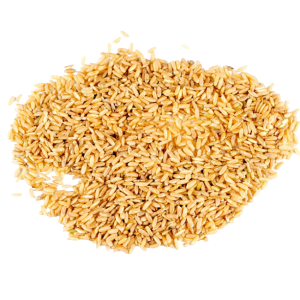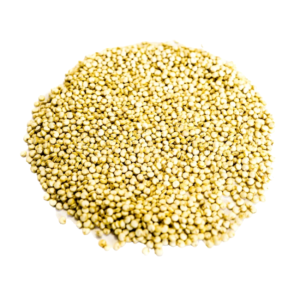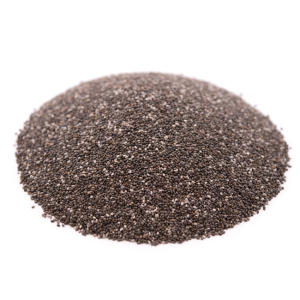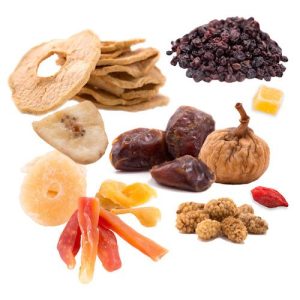Gluten free refers to a diet or a product that does not contain gluten. Gluten is a protein found in wheat, barley, and rye, as well as some other grains. People who have celiac disease or gluten sensitivity must follow a strict Gluten free diet to avoid negative health effects.
Celiac disease is a serious autoimmune disorder that affects the small intestine. It is triggered by the consumption of gluten, a protein found in wheat, barley, and rye. When someone with celiac disease consumes gluten, their immune system attacks the lining of the small intestine, causing damage and inflammation. According to the National Institute of Diabetes and Digestive and Kidney Diseases, it is estimated that approximately 1 in 141 Americans has celiac disease. This equates to around 1.8 million people in the United States who have the condition.
A Gluten free diet typically includes foods made from naturally Gluten free grains such as rice and quinoa, as well as fruits and vegetables.
A Gluten free diet is the only effective treatment for celiac disease. This means avoiding all foods and products that contain gluten, including wheat, barley, and rye. Gluten is found in many foods, such as bread, pasta, cereal, and baked goods, as well as in less obvious sources, such as soups, sauces, and processed meats. Following a Gluten free diet can be challenging, but it is essential for people with celiac disease to manage their symptoms and prevent long-term complications. Fortunately, there are many Gluten free alternatives available, such as Gluten free bread, pasta, and baking mixes, as well as naturally Gluten free foods, such as fruits, vegetables, and proteins. It is important for people with celiac disease to read food labels carefully and to be aware of potential sources of gluten, such as cross-contamination during food preparation or processing.
For people with celiac disease, a strict Gluten free diet is necessary to manage the condition and prevent symptoms.
Here are some foods that are organically Gluten free.
- Brown Rice
Brown rice is a popular and versatile Gluten free grain that is enjoyed by people around the world. It is a whole grain that is high in fiber, vitamins, and minerals, making it a nutritious addition to any meal. Brown rice is naturally Gluten free, but it is important to make sure that it has not been contaminated with gluten during processing or packaging. Many brands offer Gluten free brown rice that has been produced in facilities that are dedicated Gluten free, and these brands are often certified Gluten free by third-party organizations. Gluten free brown rice can be cooked in a variety of ways, including boiling, steaming, and baking, and it can be used in a variety of dishes, such as stir-fries, salads, and casseroles. Overall, Gluten free brown rice is a healthy and delicious grain that can be enjoyed by anyone, regardless of their dietary needs or preferences.
- Quinoa
Quinoa is a Gluten free pseudo-cereal that is native to South America. It is a nutrient-dense food that is high in protein, fiber, vitamins, and minerals, making it a great choice for people with celiac disease or gluten sensitivity who are looking for a nutritious alternative to gluten-containing grains. Quinoa is naturally Gluten free, and it is often used as a substitute for wheat, barley, and rye in Gluten free recipes. It can be cooked in a variety of ways, including boiling, steaming, and baking, and it can be used in a wide range of dishes, such as salads, soups, and stews. While quinoa is a safe and nutritious food for most people, some individuals may experience an allergic reaction to quinoa, so it is important to consult with a healthcare provider if you have any concerns. Overall, Gluten free quinoa is a versatile and nutritious ingredient that can be enjoyed by anyone looking for a healthy and delicious alternative to gluten-containing grains.
- Chia Seeds
Chia seeds are a popular and nutritious Gluten free food that are high in fiber, protein, and omega-3 fatty acids. They are often used as a superfood and a healthy addition to smoothies, oatmeal, and baked goods. Chia seeds are naturally Gluten free and safe for people with celiac disease or gluten sensitivity to consume. They can be found in most grocery stores and health food stores and are usually sold in bulk or in packages. When purchasing chia seeds, it is important to check the label for any potential cross-contamination with gluten during processing. Gluten free chia seeds can be easily incorporated into a variety of recipes and are an excellent source of nutrition for anyone looking to boost their overall health and wellbeing.
- Fruits and Vegetables
Fruits and vegetables are naturally Gluten free and are a nutritious addition to any diet, including for those with celiac disease or gluten sensitivity. They are an excellent source of vitamins, minerals, fiber, and antioxidants that are essential for optimal health. A wide variety of Gluten free dried fruits and vegetables are available year-round and can be found in most grocery stores and farmers markets. Some examples of Gluten free fruits include apples, bananas, berries, citrus fruits, grapes, melons, and tropical fruits. Some examples of Gluten free vegetables include leafy greens, cruciferous vegetables, root vegetables, nightshade vegetables, and squash. Eating a variety of fruits and vegetables can help to support overall health and reduce the risk of chronic diseases. Whether eaten raw or cooked, fruits and vegetables are a delicious and essential part of a healthy, Gluten free diet.




